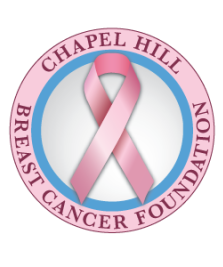Breast CAncer REsearch at WAKE FOREST UNIVERSITY
|
Association Between Use of a Scalp Cooling Device and Alopecia After Chemotherapy for Breast Cancer
Adjuvant chemotherapy reduces the 10-year relative risk of death from breast cancer by approximately 35%. Unfortunately a substantial number of women are still advised to undergo chemotherapy but choose not to receive treatment because of concerns about adverse effects. Therefore, an intervention that could reduce the adverse effects of chemotherapy may lead to improvements in the initiation and completion of therapy, in quality of life, and in survival outcomes. Reassuring patients that symptoms can be controlled may help persuade them to initiate treatment despite their apprehension and distress about doing so. One of the strongest deterrents for a woman who is deciding whether to undergo chemotherapy is concern about alopecia (hair loss). Approximately 50% of patients consider hair loss the most traumatic aspect of chemotherapy, and approximately 8% reported that they would decline chemotherapy because of this concern.6 Until now, few studies have rigorously addressed this issue. This self-contained cooling system, first introduced at Wake Forest Baptist’s Comprehensive Cancer Center and approved by the FDA was associated with a lower risk of hair loss among women receiving non–anthracycline-based chemotherapy for early-stage breast cancer. Read more >> Serum Vitamin D Levels Affect Pathologic Complete Response in Patients Undergoing Neoadjuvant Systemic Therapy for Operable Breast Cancer
Evidence suggests that vitamin D may protect against breast cancer as well as breast cancer metastasis. Vitamin D can be obtained through sun exposure, food, and supplements; however, vitamin D deficiency is prevalent in the United States. Overall, numerous studies have pointed out vitamin D’s role in reducing breast cancer risk, improving treatment outcomes and survival. Vitamin D is thought to mediate some forms of cancer by controlling cell functions, including cell proliferation. Additionally, vitamin D has also been associated with both inflammatory and estrogen-related pathways that have been linked to incidence of cancer. Building on a recent study conducted by Dr. Alexandra Thomas that evaluated the effect of vitamin D status during neoadjuvant chemotherapy on responsiveness to treatment, our study at Wake Forest Baptist currently being supported by funds from the Chapel Hill Breast Cancer Foundation is looking at improving the pathological complete response in patients with the addition of vitamin D to standard or care. Approximately one in eight women will develop breast cancer within their lifetime. This study will confirm the beneficial role of maintaining higher levels of vitamin D in women with breast cancer. Though this relationship has yet to be proven as causal, the many associations between breast cancer and vitamin D warrant public action. Read more >> Your immune system: On surveillance in the war against cancer
Predicting outcomes for cancer patients based on tumor-immune system interactions is an emerging clinical approach, and new research from Wake Forest Baptist Medical Center is advancing the field when it comes to the most deadly types of breast cancer. Read more >> |
Where your donations go100% of the funds donated to the Chapel Hill Breast Cancer Foundation go directly to supporting discovery phase breast cancer research projects at Duke, UNC and Wake Forest Universities.
Your past donations are making a difference today.
Today's donations will make a difference tomorrow. |
